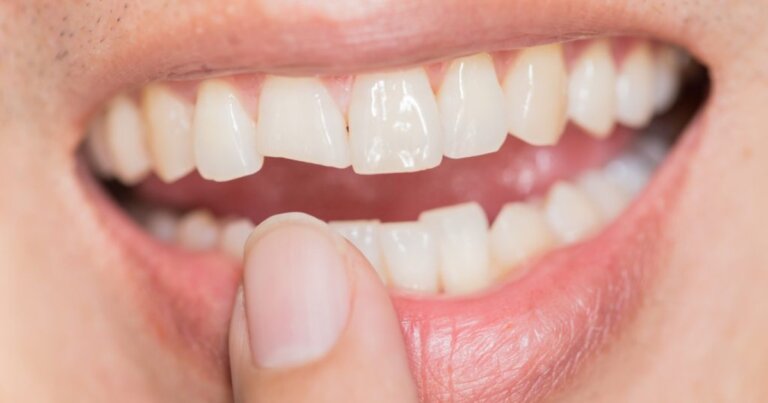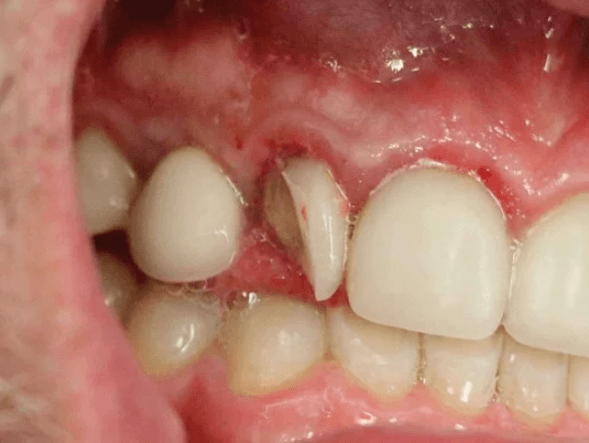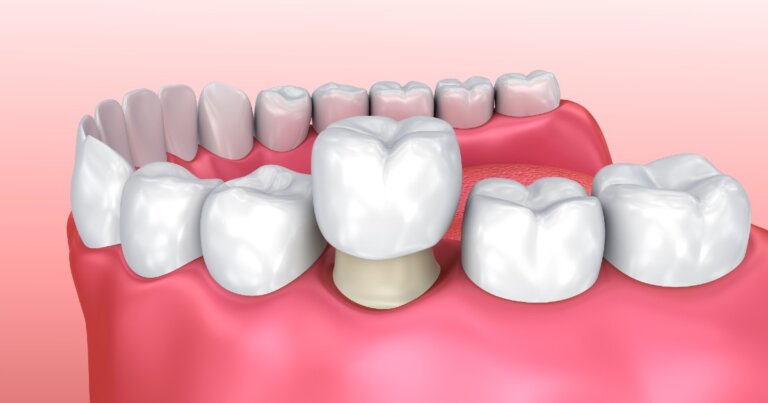Chipped Tooth

What Is A Chipped Tooth?
A chipped tooth is a common dental problem that occurs when a small piece of enamel breaks off, leaving the tooth with a rough or uneven edge. This issue can arise from a variety of causes, including biting down on hard objects, facial trauma, or even regular wear and tear. If you’ve chipped your tooth, it’s important to seek professional dental care to prevent further damage. Before you contact a Toronto dentist to examine A Chipped Tooth, there are some things you should know as a patient:
- Why Do Teeth Chip?
- Signs And Symptoms Of A Chipped Tooth
- Treatment Options For A Chipped Tooth
- Managing A Chipped Tooth Until You Can See The Dentist
- Frequently Asked Questions About Chipped Teeth
If you have questions about A Chipped Tooth or other dental problems, please contact us for more information.
Why Do Teeth Chip?
Understanding the causes of a chipped tooth can help in preventing it from happening again. Common reasons include:
- Biting on hard objects: Chewing ice, hard candy, or using your teeth as tools can cause them to chip.
- Dental trauma: A fall, car accident, or sports injury can break teeth.
- Teeth grinding (bruxism): Constant grinding or clenching can wear down your enamel, making it easier for teeth to chip.
- Tooth decay: Cavities weaken your tooth structure, increasing the risk of chips.
- Fragile teeth: Certain dental conditions or previous treatments, like large fillings or root canals, can weaken the teeth, making them more susceptible to chipping.
- Aging: Over time, enamel wears down, making teeth more susceptible to chipping.
If you’ve experienced a chipped tooth, it’s crucial to visit your dentist to avoid further damage or infection. If you have further questions about A Chipped Tooth, please contact us.

Signs And Symptoms Of A Chipped Tooth
The severity of a chipped tooth can vary. Some common signs include:
- Visible chip or break: You may notice a piece missing from your tooth.
- Tooth sensitivity: Exposure of the inner layers of the tooth can lead to sensitivity to hot, cold, or sweet foods.
- Rough or sharp edges: The chipped area may feel jagged, which can irritate your tongue or cheek.
- Pain while chewing: If the chip affects the tooth’s structure, biting down may cause discomfort.
- Discoloration: A chipped tooth may appear darker or stained compared to surrounding teeth.
If you experience any of these symptoms, schedule a dental appointment to determine the appropriate treatment. If you have further questions about signs and symptoms of a Chipped Tooth, please contact us.
Treatment Options For A Chipped Tooth
The treatment for a chipped tooth depends on the severity and location of the damage. Here are the most common solutions:
- Dental bonding: For minor chips, a tooth-colored resin can be applied to fill in the damaged area.
- Dental veneers: For front teeth with significant chips, veneers can restore the tooth’s appearance.
- Dental crown: A crown may be recommended if a larger portion of the tooth is chipped, providing both strength and protection.
- Root canal: If the chip extends into the pulp, a root canal may be necessary to remove the damaged tissue, followed by a crown for protection.
- Tooth extraction: In severe cases, the tooth may need to be extracted and replaced with a dental implant or bridge.
Your dentist can help you determine the best course of treatment based on the extent and severity of the chip or fracture. If you have further questions about how to treat a Chipped Tooth, please contact us.

Managing A Chipped Tooth Until You Can See The Dentist
If you’ve chipped a tooth and can’t get to the dentist right away, you can take some temporary measures to manage the situation:
- Take over-the-counter pain relievers: Ibuprofen or acetaminophen can help with any discomfort.
- Avoid chewing on the affected side: This prevents further damage.
- Use dental wax: Cover sharp edges with dental wax to protect your mouth from cuts.
- Rinse with salt water: This can help reduce inflammation and keep the area clean.
Remember, these are temporary solutions—seeing a dentist as soon as possible is crucial. If you have further questions about how to manage a Chipped Tooth, please contact us.
Frequently Asked Questions About Chipped Teeth
- Can a chipped tooth repair itself?
No, a chipped tooth cannot heal on its own because enamel does not regenerate. Professional dental treatment is necessary.
- What happens if I leave a chipped tooth untreated?
Leaving it untreated can lead to further damage, sensitivity, infection, or decay. It’s best to see a dentist promptly.
- Does fixing a chipped tooth hurt?
Most treatments, like bonding or crowns, are painless as dentists use numbing agents. Minor discomfort is manageable.
- What’s the most affordable way to fix a chipped tooth?
Dental bonding is typically the most cost-effective solution for minor chips.
If you have a chipped tooth, don’t wait—seeking prompt dental care can prevent further damage and restore your smile quickly and effectively. If you have further questions about how to treat a Chipped Tooth, please contact us.

